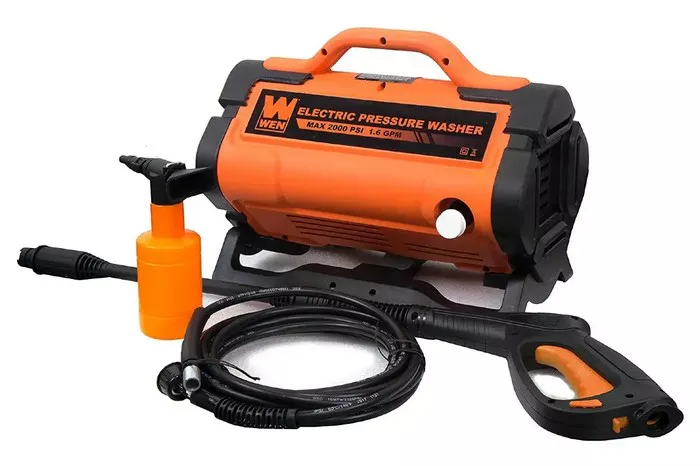Using the correct oil in a pressure washer is essential for maintaining its optimal performance and longevity. Oil serves a crucial role in cooling and lubricating internal engine parts, ensuring smooth operation and preventing premature wear and tear. In this article, we will explore the different types of oil suitable for pressure washers, the importance of oil viscosity, recommendations for specific oil grades, maintenance tips, and debunking common myths surrounding pressure washer oils.
Types of Oil
Mineral-Based Oil
Mineral-based oil is derived from petroleum through a refining process. It is a traditional choice for many pressure washer owners due to its affordability and widespread availability. While mineral oil may contain more impurities compared to synthetic oil, it remains a viable option for lubricating pressure washer engines effectively.
Synthetic Oil
Synthetic oil, on the other hand, is chemically engineered to offer superior performance and purity. It undergoes a meticulous manufacturing process that removes impurities, resulting in a cleaner and more stable oil. Synthetic oil boasts enhanced lubrication properties and better resistance to thermal breakdown, making it ideal for demanding applications such as pressure washers.
Both mineral-based and synthetic oils can be used in pressure washers, but the choice often depends on factors such as budget, preference, and desired performance level.
Importance of Oil Viscosity
Oil viscosity refers to its thickness or resistance to flow. It plays a critical role in ensuring proper lubrication and protection for engine components, particularly under varying operating temperatures. Different pressure washer models may have specific viscosity requirements based on their design and typical usage conditions.
Choosing the right viscosity grade is crucial for maintaining optimal engine performance and longevity. Common viscosity grades suitable for pressure washers include:
1. SAE 5W-30: This multi-grade oil offers excellent cold-weather performance and is suitable for a wide range of operating temperatures.
2. SAE 10W-30: Another multi-grade option with a broader temperature range, making it versatile for different environmental conditions.
3. SAE 30: A single-grade oil commonly used in pressure washers, providing reliable lubrication and protection under moderate temperatures.
Recommendations for Pressure Washer Oil
When selecting oil for your pressure washer, it’s essential to follow the manufacturer’s recommendations to ensure compatibility and optimal performance. Here are some specific oil recommendations for pressure washers:
1. SAE 10W-30: This multi-grade oil is suitable for pressure washers operating in various temperature conditions. Its versatility makes it an excellent choice for users who encounter fluctuating weather conditions or temperature extremes.
2. SAE 30: A single-grade oil recommended for pressure washers used in moderate temperature environments. It provides adequate lubrication and protection for engine components under typical operating conditions.
3. SAE 5W-30: Ideal for most pressure washer engines, this multi-grade oil offers good cold-weather performance and maintains viscosity stability across a wide temperature range.
Maintenance Tips
Proper maintenance is essential for maximizing the lifespan and performance of your pressure washer. Here are some maintenance tips related to oil:
1. Refer to the Owner’s Manual: Always consult your pressure washer’s owner’s manual for precise oil specifications and change intervals. Following manufacturer recommendations ensures compatibility and optimal performance.
2. Regular Oil Changes: Change the oil regularly based on usage and operating conditions. Regular oil changes help remove contaminants and ensure proper lubrication for engine components.
3. Check Oil Levels: Periodically check the oil levels using the dipstick provided. Maintaining the correct oil level is crucial for preventing engine damage and ensuring smooth operation.
4. Use a Funnel for Refilling: When refilling the oil, use a funnel to avoid spillage and ensure clean oil transfer. Keeping the engine oil clean helps maintain its lubricating properties and prolongs engine life.
Common Myths
Myth: Impurities in Non-Synthetic Oil Can Harm Pressure Washers
One common misconception is that impurities in non-synthetic oil can harm pressure washers. However, pressure washers can run well on both synthetic and non-synthetic oils, provided they meet the manufacturer’s specifications.
Real-World Example: Your Neighbor Bill
Consider your neighbor Bill, who has been using a mineral-based oil in his pressure washer for years without any issues. Despite the presence of impurities, Bill’s pressure washer continues to operate smoothly and efficiently. This example illustrates that while synthetic oil offers certain advantages, non-synthetic oils can still provide reliable performance when used correctly.
Conclusion
In conclusion, selecting the right oil for your pressure washer is essential for ensuring optimal performance and longevity. Whether you choose mineral-based or synthetic oil, prioritizing proper viscosity and adherence to manufacturer recommendations is key. By following maintenance guidelines and debunking common myths, you can prolong the life of your pressure washer and enjoy efficient cleaning performance for years to come.

